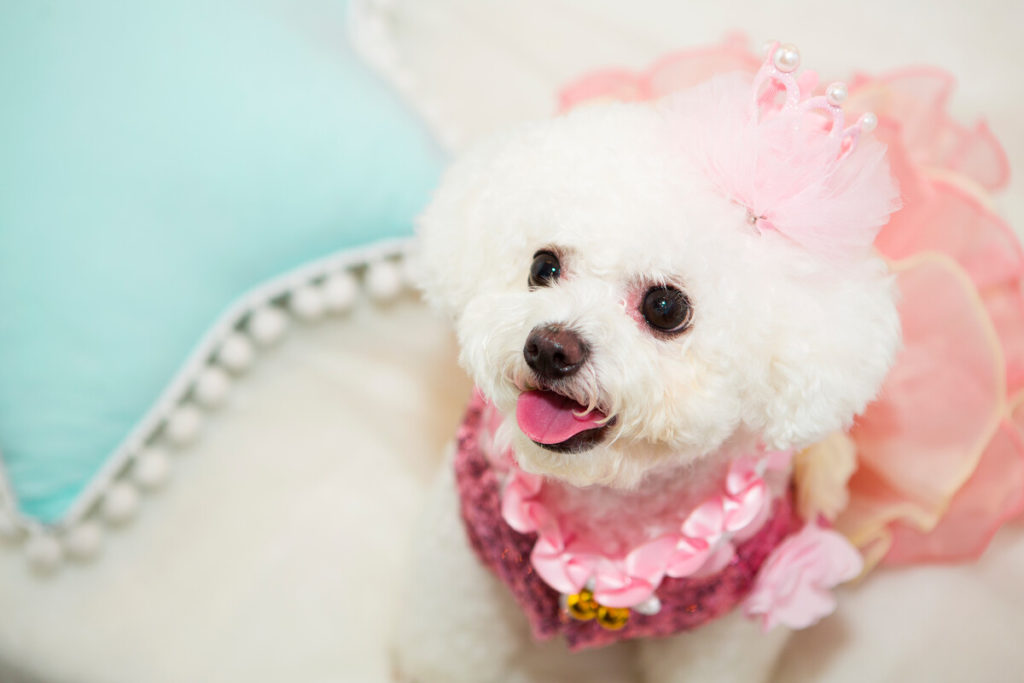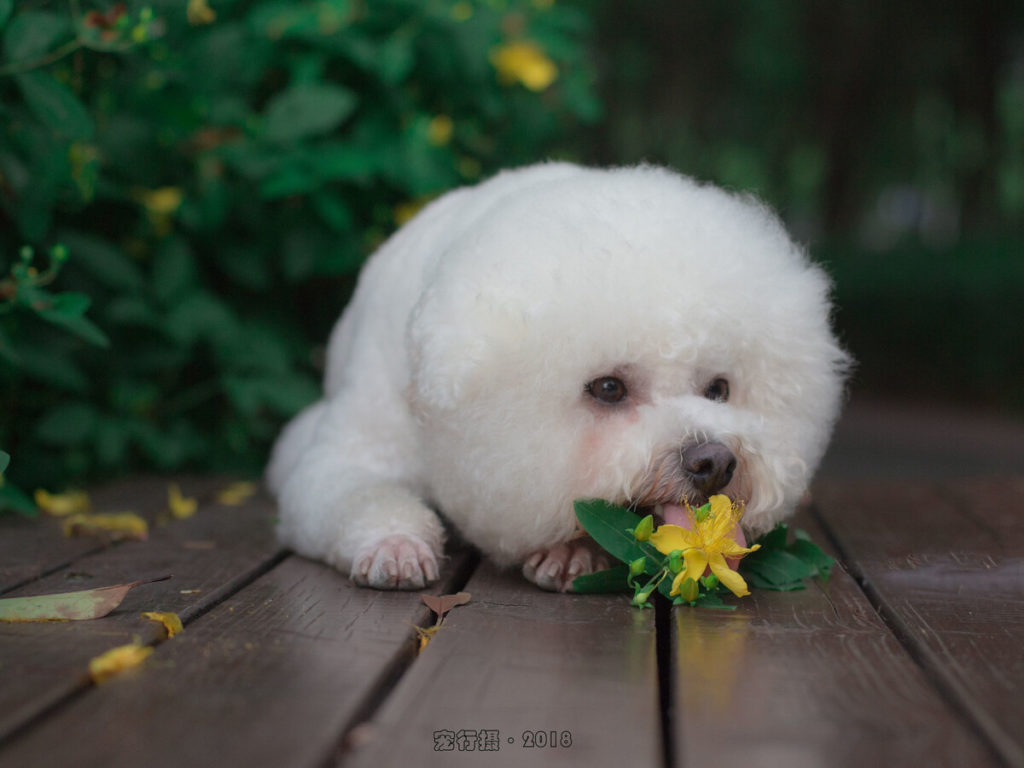Harmful Foods For Your Bichon Frise
There is a list of food to avoid feeding your Bichon Frise and I have listed here the most important Bichon Frise food to avoid. While these foods may be safely consumed by people, they should NEVER be fed to Bichon Frise because of the serious health problems they can cause.
This list of what can Bichon Frise not eat is based on my knowledge of the breed over a 45 year period, consultation with my vet and intensive research. Sharing small pieces of suitable human food from your plate with your precious Bichon Frise is a perfectly acceptable practise as long as the following foods are avoided.
What Can Bichon Frise Not Eat?
There are numerous different foods that Bichon Frise can’t eat because they can have an adverse reaction, not something you want your loved animals to experience.
Rawhide Treats
Unfortunately, rawhide bones can cause problems for dogs, especially the smaller breeds such as the Bichon Frise. The two biggest problems are:
- Bacteria contaminates these rawhide treats, causing digestive irritation.
- The bones may likely cause your dog severe choking.
You must NEVER allow your Bichon Frise to have any rawhide bones because there’s a high probability that they’ll get stuck in various parts of their digestive system, including the esophagus.
Unfortunately, this isn’t common knowledge so Bichon Frise may find it hard to breathe and it can cause damages to your Bichon Frise for the long-term.
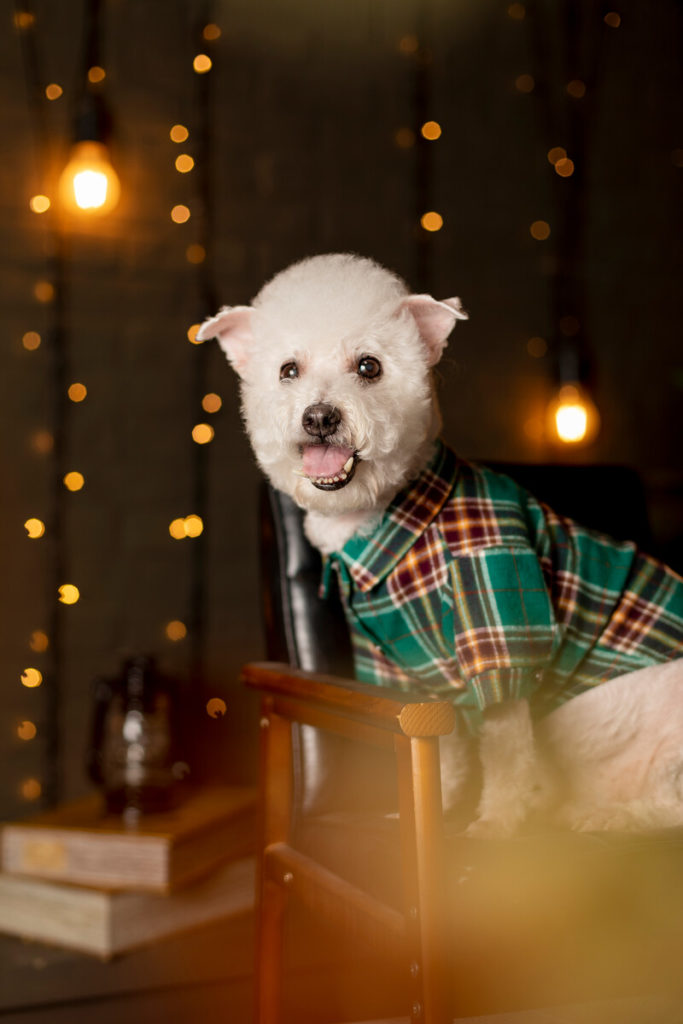
The best rawhide alternatives for your Bichon Frise are home cooked treats like home dehydrated liver treats and a great rawhide substitute for dogs is a raw meaty bone from your butcher.
Dental Chews
Avoid feeding these supposedly teeth-cleaning chews to Bichon Frise. The reason is that Bichon Frise have died after eating these products as they have caused a bowel obstruction.
Fatty Meat and Fat Trimmings
I used to believe meat scraps were great treats for my Bichon Frise when I’m preparing meals in the kitchen. However, I recently discovered that this is untrue. If you give your Bichon Frise fatty meats and the trimmings, it can cause pancreatitis, a medical ailment that causes your Bichon Frise’s pancreas to become inflamed.
Pancreatitis occurs if your Bichon Frise’s diet also contains too much salt. Between the excess salt and pancreatitis, it’s a good reason not to include these types of food in your Bichon Frise’s diet ever.
Can Bichon Frise Eat Candy?
What person doesn’t love candy? However, all sweets and candies should be kept far away from Bichon Frise because many products (such as baked goods, toothpaste, gum, candy and certain diet foods) gain their sweet taste from a product called Xylitol.
This ingredient can increase the amount of insulin in your pet’s body. That can make his blood sugar levels drop and cause liver failure in extreme cases.
Early symptoms to watch for include: lethargy, vomiting and poor coordination. Seizures may then ensue and liver failure may occur with a few days so act fast if you notice symptoms, before it’s too late.
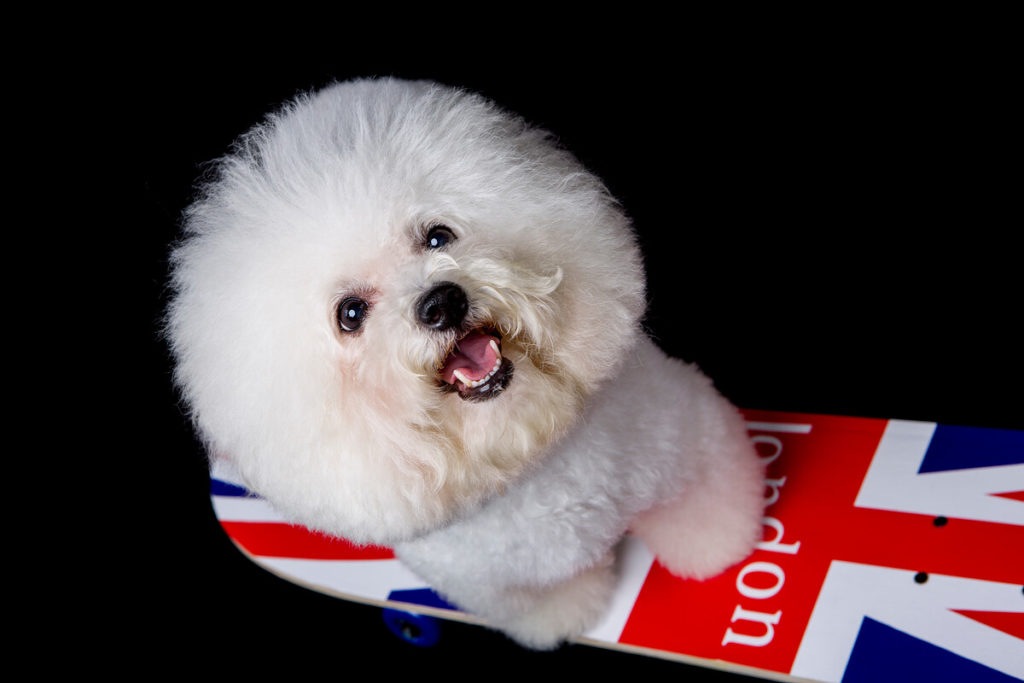
Can Bichon Frise Eat Chocolate?
Pretty much everybody knows that chocolate is toxic to Bichon Frise. The dangerous ingredient is called theobromine. This is found in most types of chocolate including white, dark and milk varieties.
What happens if a Bichon Frise eats chocolate? A single chocolate chip will often cause diarrhoea, vomiting and extreme thirst.
More serious side effects include: abnormal heart beat, seizures, tremors and, if untreated, it may prove fatal.
Can Bichon Frise Have Caffeine?
In a large amount, caffeine can kill your Bichon Frise and there are no antidotes.
Symptoms include: fits, rapid breathing, restlessness, muscle tremors, heart palpitations and bleeding.
Ensure you keep all products with caffeine in them well away from your dog. This includes tea, coffee, cocoa, chocolate, sodas, energy drinks and so on. This also means the grounds and beans of coffee.
If you throw things in the bin, ensure your dog can’t get at them. Caffeine is often found in certain medications so be careful when handling painkillers, cough medicines and other drugs. If you drop a tablet, grab it before your Bichon Frise can get to it.
Can Bichon Frise Eat Salt?
How much salt can a dog have? In low doses, Salt can be healthy for people to consume (which is good because we tend to use it a lot). However, in high doses, it’s not good for people.
Bichon Frise should never have any amount of salt because of its side effects. It’s not necessary to add salt to your Bichon Frise’s food because there’s usually enough sodium in dog food anyway.
Why is salt bad for dogs? If a Bichon Frise has too much salt, he can become dehydrated. In time, that can cause diarrhea, vomiting, depression, a high temperature, tremors and possibly seizures. This means never giving your Bichon Frise human food containing a lot of salt. Examples include pretzels, potato chips, salted nuts and other similar foods.
Can Bichon Frise Have Alcohol?
Any pet owner with common sense will know that giving your Bichon Frise (and all other pets) any alcohol will cause major health issues. Human livers can generally process alcohol at a fair rate as compared to animals. Livers of Bichon Frise can’t handle any alcohol at all. If they even have a few sips, it will negatively affect them.
If you’re having a few drinks, regardless of whether it’s spirits, wine or beer, do not even think about putting some in your dog’s bowl. It may seem funny, to make your dog a little drunk. However, you’ll just poison him with a few sips so don’t risk it.
Can Bichon Frise Have Human Medicine?
While it’s obvious to most dog lovers that you should never give them human medications, the problem is that there are still people who will use human medication if their Bichon Frise has symptoms indicating poor health. This is despite a lack of proof that cough medicine or other products can help. Sometimes a dog becomes sicker as a result of taking human medication.
If you believe your Bichon Frise is unwell and needs something to help him, speak with your vet. For example, Bichon Frise are known for having strong coughs if their trachea collapses. However, the vet can give you an effective remedy specifically for dogs who have a collapsed trachea so the problem will ease quickly.
Can Bichon Frise Eat Dough?
When I get time to bake bread, there’s always dough left over and I dislike throwing it away. However, in this case, it’s best to throw it in the bin instead of assuming it’s safe to feed your Bichon Frise. The reason is that this yeast dough still has living yeast and this will grow and make your Bichon Frise’s stomach expand. This expansion ends up as extreme bloating, and the technical term for it is Gastric Dilatation Volvulus.
The raw yeast dough expands to the point of damaging the lining of his stomach, harming his diaphragm and also cardiovascular problems. It’s fine for your Bichon Frise to eat small amounts of baked bread but NEVER should he be fed the dough itself.
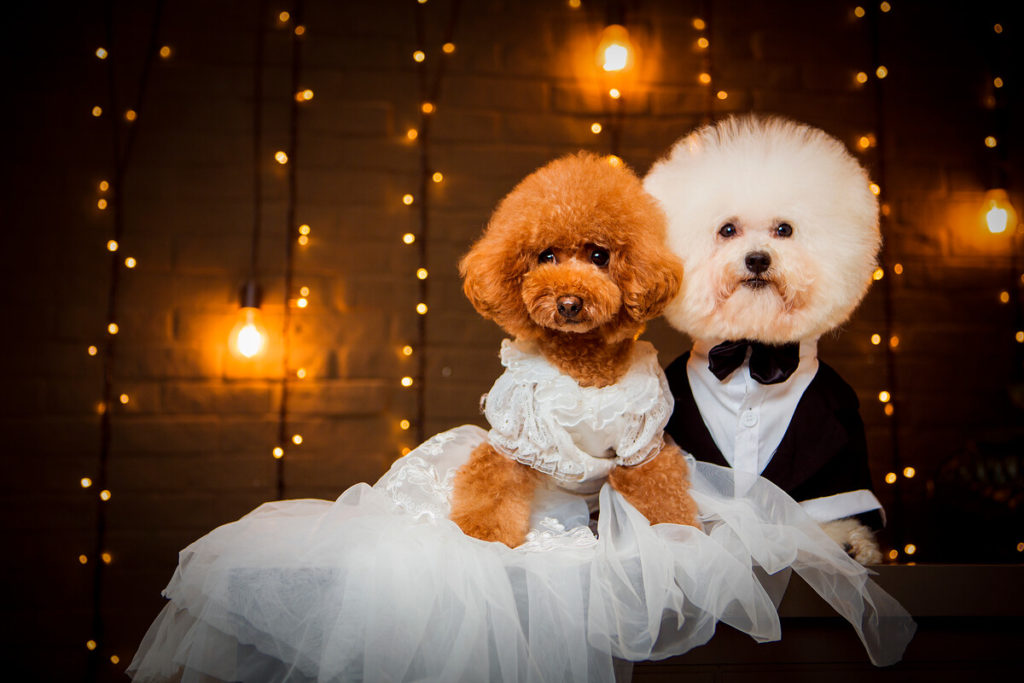
Can Bichon Frise Eat Nutmeg?
You want to know can dogs eat nutmeg and is nutmeg bad for dogs? Can dogs have nutmeg? Nutmeg is a common ingredient in foods that are baked. Humans can enjoy it without any problems.
However, nutmeg is toxic for Bichon Frise and all other dog breeds. The compound that causes nutmeg to be toxic for dogs is known as Myristicin.
If your Bichon Frise does consume this toxic foodstuff, he’s likely to experience some, or all, of the following symptoms: dry mouth, disorientation, a rise in blood pressure, abdominal pain, an increase in his heart rate, hallucinations, and the possibility of seizures.
The best thing is to never let your Bichon Frise have any baked goods as many have nutmeg as an ingredient. Even in small amounts, nutmeg may cause diarrhea and mild vomiting. So, it’s best to never give him any, rather than even a tiny amount.
Can Bichon Frise Eat Avocado?
Can dogs eat avocados? Can puppies eat avocado? Are dogs allergic to avocado? A delicious food to eat alone or with family and friends. However, when there’s food around, your Bichon Frise is sure to be nearby.
Can dogs eat avocado? Avocados are very dangerous to dogs, particularly smaller breeds, because of a substance called persin. While it’s not necessarily fatal for dogs or cats to consume, the symptoms can be nasty.
These include: diarrhoea, vomiting and/or constipation.
If you know your dog has ingested avocado, watch for these signs and, if they occur, get him to the vet asap. The more serious risk is that the big round seed in the avocado can be swallowed and get stuck in your Bichon Frise’s oesophagus, intestinal tract or stomach. The green avocado peel may cause internal damage because of its sharp edges as it’s consumed.
Can Bichon Frise Eat Green Tomatoes?
If your Bichon Frise enjoys ripe red tomatoes, they’re safe for him to eat. However,
if you have tomatoes that aren’t completely ripe and have some green parts, then you must NEVER give him those to eat. The green sections contain a dangerous substance that’s called solanine.
This substance can be found in the stems and leaves of tomato plants and cause health problems including: tremors, muscle weakness, gastrointestinal problems, loss of coordination, cardiac issues, and seizures. If you’re growing them in your garden or in the house, make sure your Bichon Frise can’t get near enough to eat them.
Can Bichon Frise Eat Eggplant?
Is eggplant toxic to dogs? It’s uncommon to give your Bichon Frise eggplant which is good because it’s another dangerous food. It’s a member of the nightshade plant family, along with tomatoes.
The plants in this family can affect people as well as dogs, by causing allergic reactions. If your Bichon Frise does eat eggplant, keep your eye out for any symptoms.
If he does consume eggplant, ensure it’s a tiny amount and observe his behavior, looking for signs such as: an upset tummy, a rash or that he starts itching and trying to ease it himself. More serious effects may be facial swelling and vomiting. To be 100% safe, it’s best to add eggplant to the “do not feed” list.
Can Bichon Frise Eat Peppers?
There are plenty of people who absolutely love the taste of spicy foods. There’s a substance inside habaneros, jalapenos, chilis and other spicy peppers called capsaicin. This is the ingredient with the powerful kick.
Dogs can taste the spicy effect in a more powerful way than people, and this is despite not having anywhere near the number of taste buds that people have. Dogs only have 1700, as compared to people with approx. 9000.
Despite the same sensitivity as humans, dogs feel the powerful effects of spicy foods with greater intensity. This means Bichon Frise might sweat, cry, cough, foam at the mouth, and even damage their esophagus and stomach. Spicy foods need to be added to the Bichon Frise “do not feed” category.
Can Bichon Frise Eat Mushrooms?
If you’re wondering…can dogs eat mushrooms, then the answer is yes…and NO, and read on to better understand the differences. Most mushrooms are delicious foods for humans and dogs, BUT wild mushrooms are a different story and shouldn’t be touched.
The problem is that Bichon Frise and other dogs wander out into nature and may discover mushrooms, which they’ll most likely eat. Some of the mushrooms are harmless but there are others that are toxic and could cause severe health problems you Bichon Frise doesn’t deserve to experience.
There are lots of different wild mushrooms and numerous symptoms your dogs might experience. These include: lethargy, diarrhea, vomiting, excessive drooling, uncoordinated movements, abdominal pain, skin turning yellow, seizures and could send your Bichon Frise into a coma.
There are too many wild mushrooms to list off that could cause your Bichon Frise to suffer unnecessarily. However, common symptoms that occur after consuming them include vomiting, diarrhea, abdominal pain, lethargy, yellowing of the skin, uncoordinated movements, excessive drooling, seizures, and even a coma.
So, if you see your dog munching on a mushroom in the wild, quickly grab a sample and take your Bichon Frise, as well as the sample, straight to the vet.
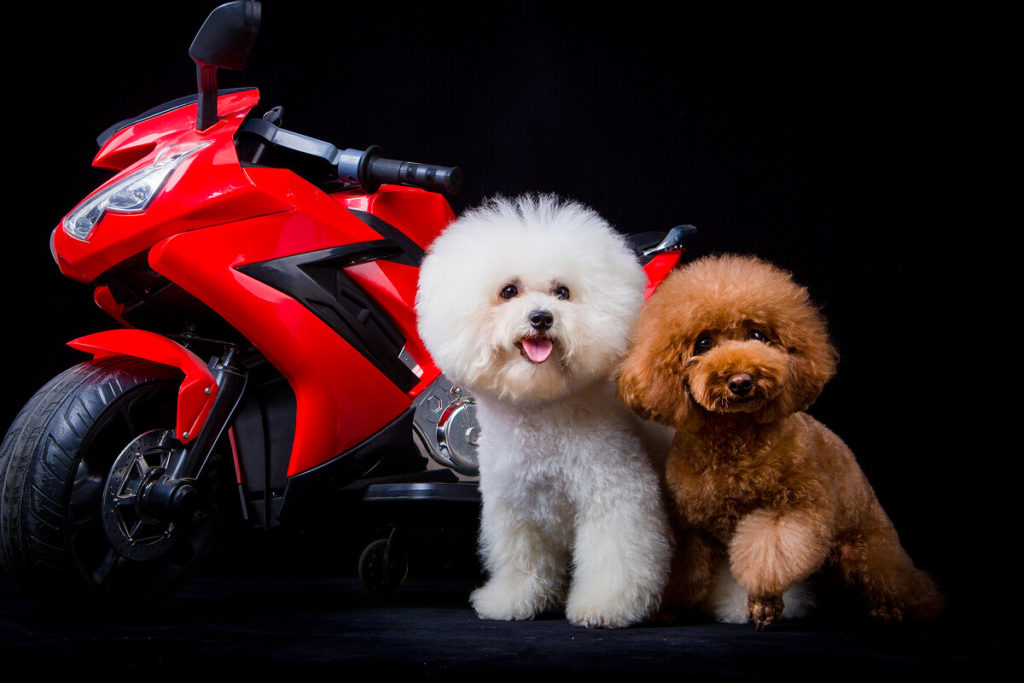
Can Bichon Frise Eat Grapes?
Dogs Should Not Eat Grapes and Raisins. You may think that raisins and grapes are a delicious treat for your dog but FORGET IT! While scientists haven’t identified the reason, they have stated that consumption of these foods, even in small amounts, can cause dogs to suffer from kidney failure.
Symptoms may include: continual vomiting, depression and lethargy. Enjoy these foods yourself but don’t give any to your beloved Bichon Frise.
Can Bichon Frise Eat Raisins?
Raisins have certain similarities to grapes and create the same serious problems. Raisins are highly toxic to Bichon Frise, and this also includes jams and jellies that are made from these ingredients. The wisest action is not to include raisins in anything your Bichon Frise is given to eat.
Can Bichon Frise Eat Currants?
Are currants poisonous to dogs? From the same family as raisins and grapes, currants are toxic and must be avoided completely.
The real problem is that currants can be found in numerous healthy foods for humans, including bagels, bread, trail mix and various other baked foods. For this reason, don’t give your Bichon Frise any foods with these particular ingredients in them.
Can Bichon Frise Eat Persimmon Fruit?
Persimmons are among the most delicious, healthy foods that humans can eat. However, if you’re asking the question – can dogs eat persimmon fruit – the answer is NO! The seeds inside persimmons can’t be properly digested by dogs and so inflammation of the small intestine may be one of the problems faced by dogs who do consume persimmons.
Persimmons may also obstruct the small intestine. A persimmon pit contains trace amounts of cyanide, the poison that’s equally as deadly to people as to Bichon Frise and other dogs. The bottom line here is never to feed persimmons to your Bichon Frise.
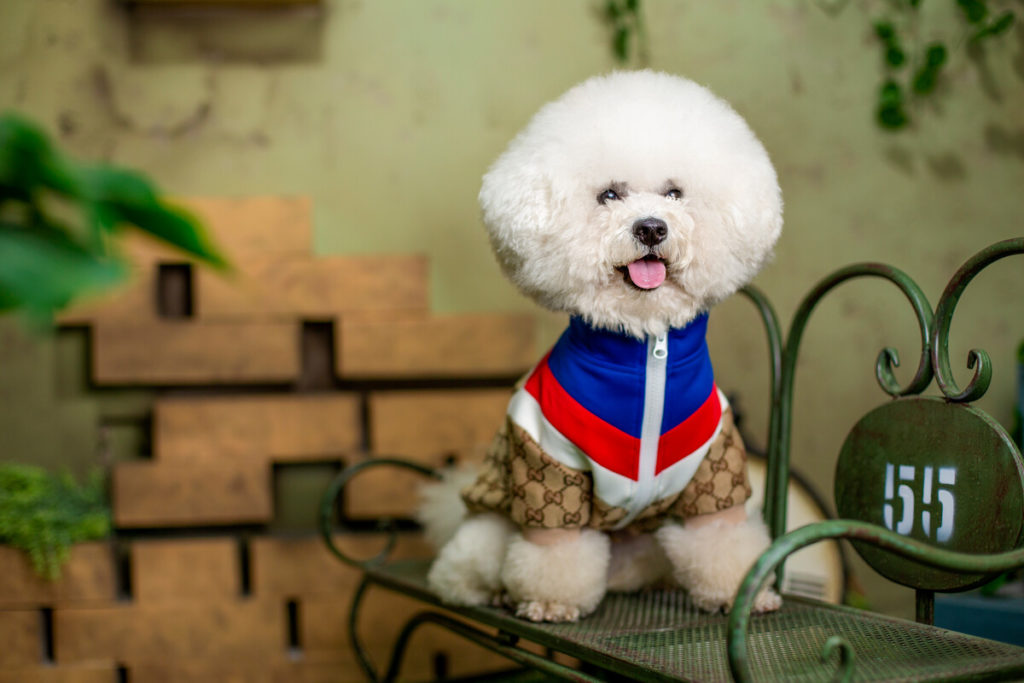
Can Bichon Frise Eat Cherries?
Bichon Frise can safely enjoy eating some fruits but cherries are one to never give your Bichon Frise. The leaves, stems and pits all contain cyanide (in a similar way to peaches) and are poisonous to people and Bichon Frise.
Cyanide poisoning is common among dogs, but the other serious risk is the pits of the cherries because they can cause obstructions of the airways, intestinal lines and digestive tract in Bichon Frise.
Can Bichon Frise Eat Plums?
Can dogs eat plums? The fruit isn’t the problem. It’s the seeds and pit that causes harm.
Alongside peaches and persimmons, plums are toxic to Bichon Frise because the seeds can’t be easily digested.
So, there is a double trouble issue with plums. The seeds have been covered but any jellies or jams with plum, peach or persimmon seeds can cause major problems for your Bichon Frise.
Can Bichon Frise Eat Peaches?
Can dogs eat peaches? Plum and peach pits contain cyanide, poisonous to dogs and people. Bichon Frise are generally clever, but some still don’t realize that fruit pits can’t be eaten.
As with persimmons, peaches are extremely toxic because the seeds are difficult to digest by Bichon Frise so it’s wise to not give them to your Bichon Frise at all.
Can Bichon Frise Drink Milk and Other Dairy Foods?
Can Bichon Frise have milk? Is it ok for my dog to drink milk? Is milk good for Bichon Frise? The lactose in all dairy products can cause your Bichon Frise to suffer from digestive problems and diarrhoea. Bichon Frise food allergies often include milk, so use caution when giving your Bichon Frise milk.
I’m sure you don’t want to intentionally make your Bichon Frise sick (not to mention the need to clean up the unpleasant messes afterwards). Such products can also trigger allergies if consumed regularly. Itchiness is the typical side effect.
Is It OK for Puppies to Drink Milk?
Don’t avoid giving your Bichon Frise dairy products completely. Dogs, especially pups, nursing and pregnant mothers, require milk and other dairy products as part of their diet for calcium.
Can Bichon Frise Eat Cheese?
Low fat cheese, yoghurt and milk specially formulated for dogs and pups are the best choices to feed your Bichon Frise.
Can Bichon Frise Eat Pecans?
Are pecans ok for dogs? There are lots of nuts that aren’t safe for your Bichon Frise to eat and pecans are on that list. Juglone is a known toxin found in pecans that can hurt your Bichon Frise.
Some nuts, including pecans, can grow specific molds that can be dangerous if ingested by Bichon Frise. It’s wise to not feed to your dog as the typical symptoms include tremors and seizures.
Are Walnuts Safe for Dogs?
Can my dog eat walnuts? Walnuts bear some similarity to pecans in that they can cause Bichon Frise harm if eaten. It’s because they have a low level of a harmful mold that creates negative effects that bear a certain similarity to pecans.
If your Bichon Frise eats walnuts, they can also suffer neurological problems so it’s best not to feed your Bichon Frise any walnuts to prevent such problems from occurring.
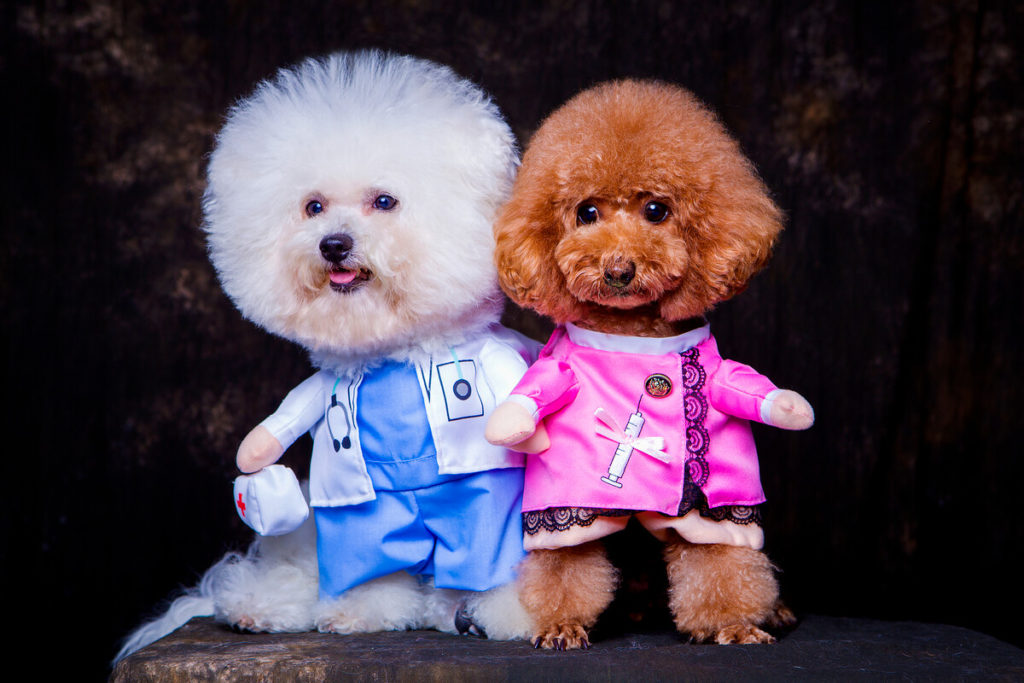
Can Bichon Frise Eat Macadamia Nuts?
I don’t like Macadamia nuts so there aren’t ever any in my pantry. However, if you love these nuts, keep them away from your Bichon Frise. This applies equally to other products containing these nuts. If your dog does consume even a few, it may prove fatal.
Six nuts are enough to make a dog sick but because your Bichon Frise is a small breed, it can take just two or three nuts to make him ill.
Symptoms of Macadamia poisoning include: weakness and/or paralysis of his hindquarters, muscle tremors, vomiting, rapid heartbeat and an increase in body temperature. No Bichon Frise should have to suffer these symptoms.
Can Bichon Frise Eat Onions?
Any form of onion can kill your Bichon Frise’s red blood cells, thereby causing anaemia. As Bichon Frises are a small breed, even a small amount of onion can be fatal if not treated fast enough.
Onion toxicity in dogs symptoms include: loss of appetite, vomiting, breathlessness, dullness and weakness.
The following foods are similar to onions in the effects they can cause so it’s best to never feed your Bichon Frise any of the following foods for those same reasons.
Can Bichon Frise Eat Shallots?
Shallots have the same problems as onions due to their ingredients so it’s wise to avoid any food that has shallots in it.
Can Bichon Frise Eat Garlic?
Garlic has some similarities to onions as well. They’re highly toxic to Bichon Frise and other dogs. The potency of garlic is five times greater than onions so never allow your Bichon Frise anywhere near garlic.
Garlic can affect the red blood cells, causing anemia. It can also cause severe heart problems. Other troubles include: pale gums, lethargy, increased respiratory and heart rates, and your Bichon Frise may even collapse, so garlic can trigger quite a few serious issues so it’s to be avoided at all cost.
Can Bichon Frise Eat Leeks
Are leeks poisonous to dogs? Leeks also belong to the onion, garlic and shallot family. If your Bichon Frise consumes any of these ingredients, he can become anemic over time, as well as experiencing other health troubles. You shouldn’t force your Bichon Frise to lead an unhealthy, tough life when it’s easily avoided.
Can Bichon Frise Eat Chives?
There’s not much to say about chives as they also belong to this family. However, be wary of dog food brands that list chives as one of their ingredients, so you don’t feed your Bichon Frise chives by accident.
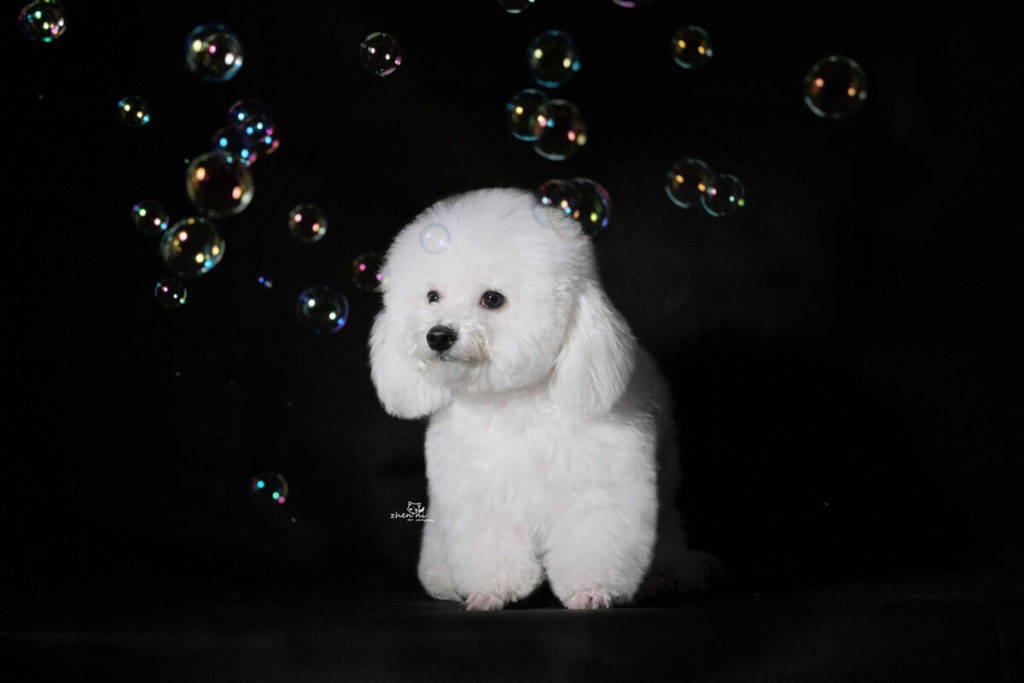
What Happens if Your Bichon Frise Eats These Foods?
Bichon Frise are naturally inquisitive and love tasting and sniffing things. While owners do everything they can to protect their beloved pets, it’s also wise to have a plan of attack if your Bichon Frise does eat something dangerous.
Keep phone numbers of your vet, the animal hospital and the Poison Control Centre on your fridge where you can easily see them in an emergency.
Feed Your Bichon Frise Healthy, High-Quality Food
I hope, by now, you’re gaining a good appreciation for the types of foods your Bichon Frise should NEVER be fed and the reasons why. The health problems your Bichon Frise may face will range from mild right through to those foods that prove deadly to your beloved pet.
Either way, keep a list of those bad foods so you never make mistakes when it comes to feeding time. Apart from all the types of dog foods available, you can focus your thoughts on adding extra flavor with a range of human foods that are safe and healthy for your Bichon Frise to consume.
Keep this handy reference Bichon Frise dog food list so you don’t need to worry if a food is good or bad every single time.
Human foods your Bichon Frise will love include:
- Seedless fresh fruits.
- Cooked lean meats.
- Cucumber.
- Zucchini.
- Brussels sprouts.
- Broccoli.
- Carrots.
- Cauliflower.
- Green beans.
- Peanuts.
- Cooked pasta.
- Cooked white rice.
There are other human foods that you can safely feed your Bichon Frise but the items on this Bichon Frise dog food list are commonly fed to Bichon Frise so it’s smart to pin it to your fridge or another place that’s easy to remember to check.
So, enjoy creating delicious meals for your family, and this includes your four-. legged members. When shopping for dog food, always read labels, select organic options where possible, and buy high-quality, healthy dog food and create an environment that’s healthy and safe for your Bichon Frise.
Please note: while I do discuss health, care and behavioural issues, you should never use this information as a replacement for advice from qualified veterinarians, diagnoses or recommended treatment regimes. If you have any worries about the health of your Bichon Frise, your first contact should be your regular vet or, if you don’t yet have one, a vet that works locally. Never ignore or avoid treatment and/or advice from your vet because of a piece of information you have read on any website.


